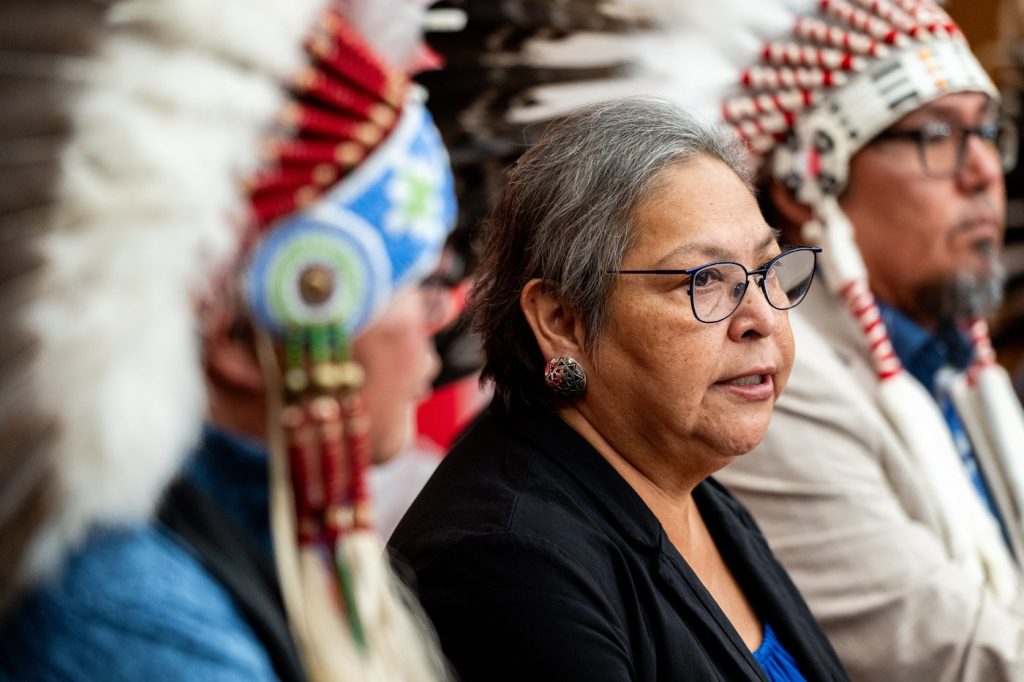OTTAWA — Prime Minister Mark Carney met with hundreds of First Nations chiefs on July 17, 2025, amid skepticism and frustration concerning his major-projects legislation, Bill C-5.
Bill C-5 grants the federal government extensive powers to expedite permits for what the Liberal government terms "nation-building projects." Carney argues that this bill is essential for bolstering the economy, especially in light of a trade war with the United States. However, critics characterize the legislation as a significant power grab by the federal government.
What Issue is Bill C-5 Addressing?
Canada has witnessed a decline in large infrastructure projects over the past decade. This has led critics, including Conservatives, various provinces, and industry groups, to assert that Ottawa's regulatory framework stifles growth. The Liberal government previously attempted to streamline project approvals through Bill C-69, which aimed to address environmental and Indigenous concerns upfront to prevent lengthy court battles. Critics, however, argue that this law has obstructed significant infrastructure projects since it was enacted in 2019. Federal Conservatives labeled the law the "No More Pipelines Act," which has faced significant opposition in Alberta and Saskatchewan.
Carney assumed office in April with a directive to diversify Canada’s economy and enhance the ability to export products to markets beyond the United States. Additionally, Ottawa has committed to upgrading northern infrastructure partly to meet NATO's military spending target for critical projects.
According to Carney, Bill C-5 will transform the approach to project approvals as soon as projects are selected, changing the focus from "why" to "how" these projects can proceed.
Potential Projects for Fast Tracking
It is not yet clear which specific projects could qualify for expedited processing under Bill C-5. The government has mentioned potential projects, including ports, railways, and some pipeline initiatives. For instance, the Ontario government has suggested that a significant commuter highway tunnel might be eligible as a nation-building project.
Provincial Legislative Actions
In addition to the federal initiative, some provinces have enacted their own legislation aimed at expediting development. Ontario's Bill 5 allows the provincial government to establish "special economic zones," enabling it to suspend various regulations, such as safety and environmental standards, with a focus on mining projects. Similarly, British Columbia's Bill 15 facilitates the speedy construction of critical infrastructure, including mineral mines and hospitals.
Key Provisions of the Federal Bill
Bill C-5 contains two principal components. The first aims to remove barriers to interprovincial trade and labor mobility while harmonizing regulations across Canada. The second part of the bill focuses on fast-tracking approvals for projects deemed to be in the national interest by the government. The criteria for this designation include enhancing Canada’s autonomy, battling climate change, and advancing Indigenous interests. Securing this approval would waive many federal environmental regulations for the project, provided that the proponent meets conditions set by the federal government.
Rushed Process and Criticism
The government expedited Bill C-5 due to support from the Conservatives, pushing it through the House of Commons to the Senate with a programming motion demanding quick passage. Critics contend that the rushed process did not allow for adequate review, pointing out that proposed fast-track projects could wait until after Parliament's summer recess to begin work. Some have suggested that Parliament could have continued its sessions throughout the summer instead of dispersing for twelve weeks.
Indigenous Perspectives
Indigenous leaders have largely opposed the legislation, arguing that certain aspects may undermine their rights. Although the government amended the bill to clarify that it does not override the Indian Act, Indigenous leaders remain concerned it still jeopardizes fundamental rights. Notably, the bill does not mention the United Nations declaration that Ottawa has endorsed, assuring Indigenous communities “free, prior, and informed consent.” The Assembly of First Nations expressed that the government’s plan to establish advisory councils post-enactment of the bill does not provide substantial power to local Indigenous communities.
The meeting on July 17 sparked intense reactions among chiefs, with some dismissing it as political theater rather than genuine consultation. Chief Phyllis Whitford of the O’Chiese First Nation criticized the meeting for being disrespectful and lacking meaningful dialogue, while Chief Vernon Watchmaker of the Kehewin Cree Nation warned of increased court challenges and diminished investor confidence due to the perceived centralization of power in Ottawa. While some Indigenous communities in Alberta support the legislation based on economic interests tied to energy projects, others are preparing for large-scale protests against specific initiatives.












